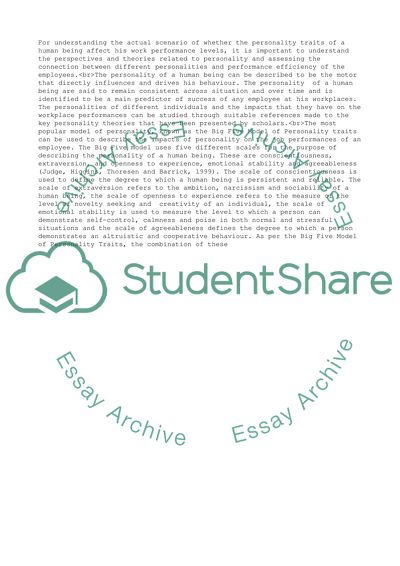Cite this document
(To What Extent Does Personality Predict Employee Performance Essay Example | Topics and Well Written Essays - 1500 words, n.d.)
To What Extent Does Personality Predict Employee Performance Essay Example | Topics and Well Written Essays - 1500 words. https://studentshare.org/management/1863561-to-what-extent-does-personality-predict-employee-performance
To What Extent Does Personality Predict Employee Performance Essay Example | Topics and Well Written Essays - 1500 words. https://studentshare.org/management/1863561-to-what-extent-does-personality-predict-employee-performance
(To What Extent Does Personality Predict Employee Performance Essay Example | Topics and Well Written Essays - 1500 Words)
To What Extent Does Personality Predict Employee Performance Essay Example | Topics and Well Written Essays - 1500 Words. https://studentshare.org/management/1863561-to-what-extent-does-personality-predict-employee-performance.
To What Extent Does Personality Predict Employee Performance Essay Example | Topics and Well Written Essays - 1500 Words. https://studentshare.org/management/1863561-to-what-extent-does-personality-predict-employee-performance.
“To What Extent Does Personality Predict Employee Performance Essay Example | Topics and Well Written Essays - 1500 Words”. https://studentshare.org/management/1863561-to-what-extent-does-personality-predict-employee-performance.


